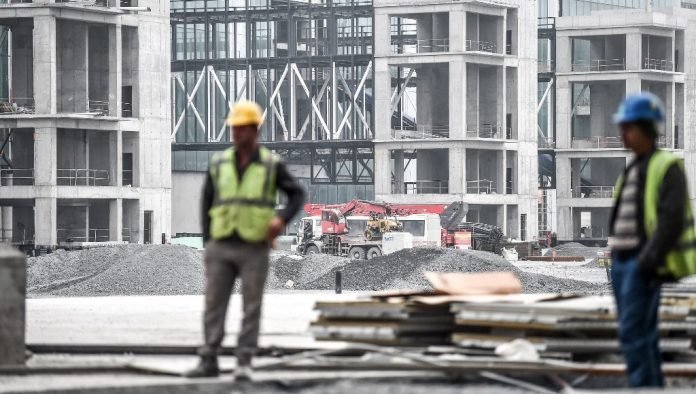A yearly report by the International Trade Union Confederation (ITUC) on labor rights reveals that Turkey is one of the 10 worst countries in the world for working people.
According to the Brussels-based ITUC, workers’ freedoms and rights continued to be relentlessly denied with police crackdowns on protests in Turkey in 2023 and in the first half of 2024.
The report includes the story of Makum Alagöz, the president of a textile workers’ union who in February 2024 was shot in the leg when he was called in to negotiate unpaid wages and benefits, following the factory’s declaration of insolvency.
“The assault was a chilling reminder of a hostile anti-union climate,” the ITUC said, adding that “employers continued to engage in systematic union-busting by methodically dismissing workers who attempted to organise.”
Officials from Turkey’s Health and Social Service Workers Union (SES) have been on trial due to its trade union activities since May 2021. The current and former co-presidents, Selma Atabey and Gönül Erden, were arrested after a dawn raid on the union’s office and the two women were charged with terrorism. The pair have since been released, because of international and national solidarity campaigns, but several other union activists remain under house arrest and criminal charges against them remain active.
Most recently, Turkish riot police detained more than 217 people trying to reach İstanbul’s main Taksim Square for May Day demonstrations protesting economic hardship and the exploitation of labor.
According to Turkish unions, the ruling Justice and Development Party (AKP) has put immense pressure on them. In 2022, unionization stood at 14 percent, down from 58 percent in 2003 when the AKP came to power.
“The policies of the AKP government have made it nearly impossible for workers to organize in unions,” said Başaran Aksu from the United Metal Workers Union. “Many workers who have joined unions have been fired from their jobs.”
The AKP government introduced new laws, such as Law No. 4857 and Law No. 5510, which made it easier for employers to recruit workers without providing insurance and to adjust working hours, leading to more work hours in the private sector. The new laws also raised the age of retirement and led to a drastic drop in pensions.
People have also been suffering from lax work safety standards for decades in Turkey, where workplace accidents are nearly a daily occurrence.
According to a recent report by the Health and Safety Labor Watch (İSİG), at least 425 people died in workplace accidents in Turkey in the first four months of 2024. The country has recorded 31,131 deaths in work-related accidents since the AKP came to power in November 2002, İSİG said.
Despite the lack of job security, multiple occupational hazards and poor working conditions, the number of strikes has decreased during AKP rule. Union leaders said the authoritarian rule and a two-year state of emergency declared after a 2016 coup attempt led to the drop in strikes.















